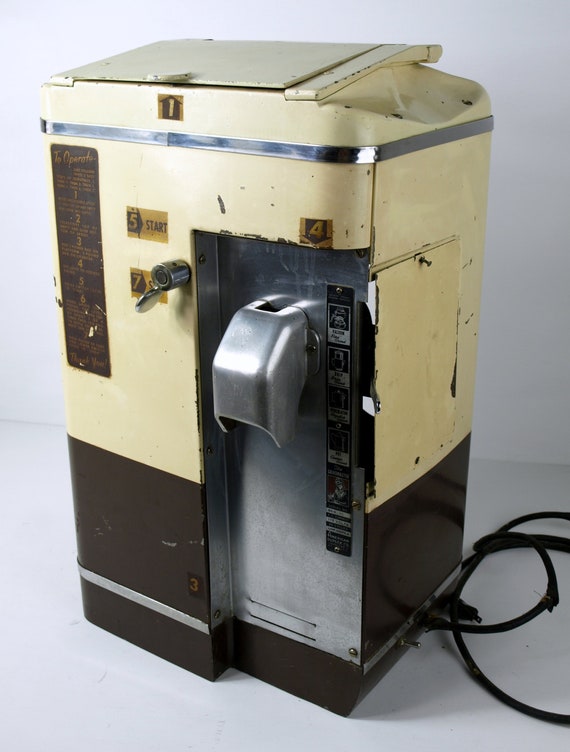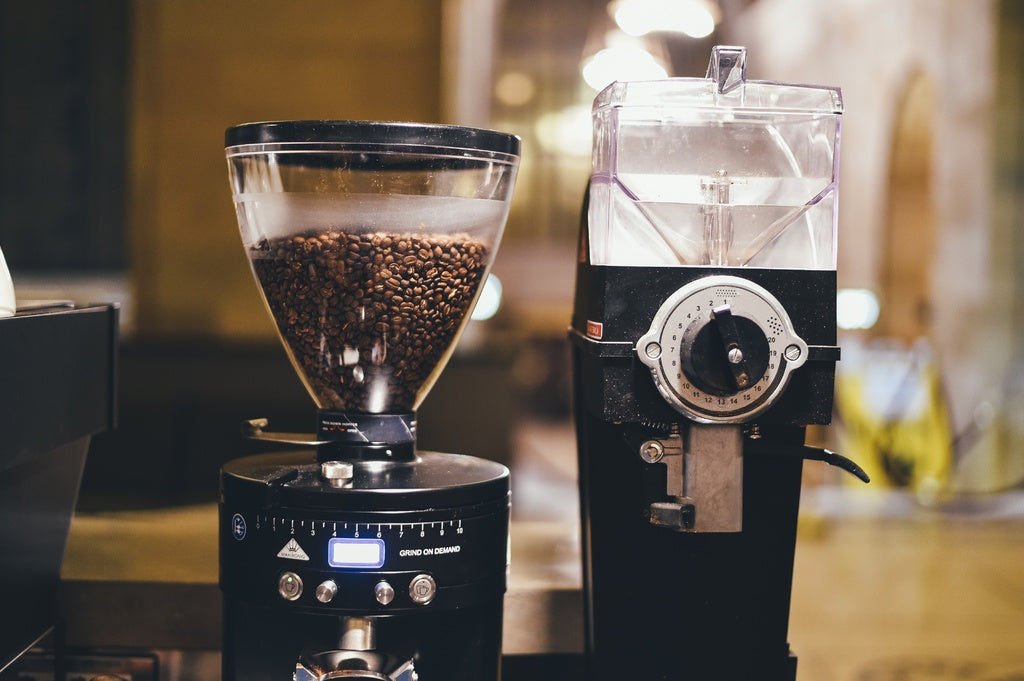Industrial Coffee Grinder Overview: Boost Efficiency and Top Quality
In the affordable landscape of coffee production, selecting the best commercial coffee mill plays an essential role in enhancing both effectiveness and product high quality. Recognizing the subtleties of different mill types and crucial functions-- such as personalized grind settings and durable building and construction-- can dramatically affect the last flavor account of the coffee. The optimization of the grinding procedure, coupled with thorough upkeep, is necessary for maintaining performance over time. As we explore these important components, it becomes apparent that the effects extend beyond simple tools option, impacting overall company success in manner ins which call for closer assessment.
Comprehending Grinder Types
When selecting a commercial coffee mill, comprehending the numerous types offered is important for maximizing both flavor extraction and operational effectiveness. The two main sorts of grinders are blade grinders and burr grinders. Blade grinders utilize sharp blades that cut coffee beans right into inconsistent dimensions, leading to unequal removal and potentially undesirable flavors. While blade grinders are frequently much more cost effective and suitable for small-scale procedures, they are normally not suggested for industrial usage.

Ultimately, choosing the appropriate kind of grinder is indispensable to maintaining top quality and performance in coffee production, making it imperative for services to buy premium burr mills for optimum results.
Secret Attributes to Consider
Choosing a commercial coffee mill requires careful consideration of a number of vital features that can considerably influence both efficiency and the total coffee experience. Among the key aspects to assess is the grinding system. Burr mills are usually preferred over blade grinders, as they offer a constant work dimension, which is critical for optimal extraction and flavor.
One more crucial attribute is the mill's capacity. Relying on the volume of coffee you require to process, select a model that can manage your demands without compromising rate or top quality. Additionally, take into consideration the grind settings used. A flexible grinder with multiple settings allows you to customize the work dimension to various developing techniques, improving the coffee's flavor profile.
Evaluate the grinder's noise degree, especially in an active coffee shop or production setting, where excessive noise can be turbulent. Investing in a mill that balances these functions can greatly improve both functional performance and the high quality of the coffee offered.
Optimizing Grinding Refine
To achieve the very best lead to coffee preparation, optimizing the grinding process is crucial. The work size significantly affects extraction, flavor, and total top quality of the brewed coffee. Different developing methods need details work dimensions; for circumstances, coffee requires a great grind, while French press requires a coarse texture. Recognizing the connection in between grind dimension and brewing approach is the initial try these out step in optimization.


Additionally, keeping an eye on the grinding rate can optimize the procedure. Slower grinding frequently home creates less warmth, protecting fragile tastes and fragrances. Conversely, much faster grinding might create excessive warmth, adversely impacting the coffee's top quality.
Maintenance and Treatment Tips
Correct maintenance and care of commercial coffee grinders are necessary for making sure optimal performance and durability. Normal cleansing is the structure of upkeep; deposit buildup can influence flavor and grinding performance. It is a good idea to cleanse the grinder after each use, cleaning down the outside and removing any coffee grounds from the burrs.
Additionally, inspect the grinding burrs for deterioration. Dull burrs can jeopardize grind uniformity, so they need to be replaced as needed. Industrial Coffee Grinder. Regularly calibrating the mill is likewise important, as this maintains the wanted work dimension for various developing methods
Lubrication of moving components need to be done according to the producer's specs, as this lowers friction and prolongs the life of the equipment. It is vital to utilize food-grade lubes to make sure safety and security and conformity with wellness regulations.
Last but not least, maintain the grinder in a stable and dry setting to stop corrosion and corrosion. By sticking to these maintenance and treatment suggestions, operators can improve the efficiency of their commercial coffee mills while ensuring high-quality result and prolonged operational life.
Roi Evaluation
Examining the return on investment (ROI) for commercial coffee mills is critical for services looking for to optimize their coffee manufacturing capabilities. A comprehensive ROI evaluation helps determine the financial practicality of investing in high-quality grinders, enabling organizations to evaluate the initial expenses versus potential gains.
Analyze the purchase cost of the grinder, consisting of installation and any needed modifications to existing infrastructure. High-performance grinders typically lead to decreased grinding time and enhanced throughput, which can significantly enhance efficiency.
In addition, take into consideration the influence on product quality. Industrial Coffee Grinder. Superior mills produce an even more consistent grind size, which can enhance taste profiles and customer complete satisfaction, inevitably driving sales. By enhancing the high quality of the final product, services can justify higher pricing, resulting in increased profits
Verdict
In recap, an industrial coffee mill plays a crucial duty in improving both effectiveness and item top quality within coffee production. Inevitably, the critical investment in a dependable mill contributes significantly to enhanced profits and competition in the coffee industry.
In the affordable landscape of coffee production, selecting the ideal industrial coffee mill plays a critical function in improving both performance and content product high quality. The 2 primary types of mills are blade mills and burr grinders. Within the burr grinder classification, there are level burr grinders and cone-shaped burr mills, each with its advantages. Burr mills are usually liked over blade mills, as they supply a constant work dimension, which is important for optimum removal and taste.
In recap, a commercial coffee grinder plays a pivotal duty in enhancing both effectiveness and product high quality within coffee manufacturing.